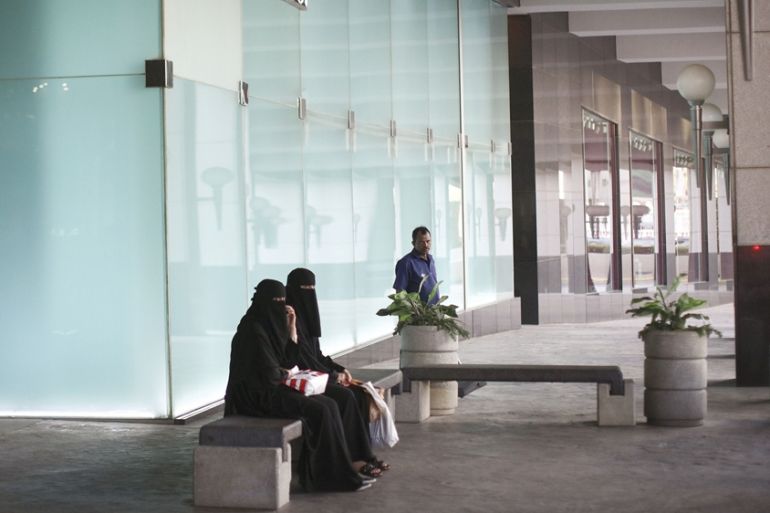Closed for prayer? Saudis wonder if virus will end another custom
In the time of coronavirus, shop closures during prayer times, a Saudi hallmark, appear to have been dispensed with.

As the call to noon prayer sounded at a shopping mall in Riyadh, a woman was having her temperature checked as she walked into a boutique. Another was sniffing the perfume that a salesman had just sprayed on her wrist. A man pushed his trolley into a supermarket.
The monotone of the muezzin beckoning Muslims to worship five times a day is usually accompanied by a rush to close stores. But in the time of coronavirus and government curfews, another hallmark of Saudi life appears to have been dispensed with. Some locals now hope the change will become part of the massive social overhaul they’ve experienced since Crown Prince Mohammed bin Salman became their de facto leader in 2017.
Keep reading
list of 4 itemsBoeing hit with 32 whistleblower claims, as dead worker’s case reviewed
US imposes new sanctions on Iran after attack on Israel
A flash flood and a quiet sale highlight India’s Sikkim’s hydro problems
Before the pandemic, most shops, pharmacies and gas stations in the kingdom halted for at least 30 minutes for each prayer session, the only country that enforced such closures. Until a few years ago, the religious police checked to make sure everyone complied.
With Saudis free to move only from 9 a.m. to 5 p.m., many businesses have decided to remain open during prayer time to make the most of the hours. Those with only one employee close briefly to allow that person to pray.
“It makes business sense,” Iman Abdullah, 40, who manages a cosmetics store, said a couple of minutes before noon prayers on a quiet day this week during Ramadan. “So far, no one has objected to us remaining open. People want to finish their business before curfew.”
She and a colleague take turns praying in a back room. Abdullah said she hoped the situation would remain the same after the Covid-19 crisis is over.
The government has ended a ban on driving for women, allowed music and entertainment and lifted restrictions on both sexes mingling in public. There was no decree – but a lot of debate – on ending closures at prayer time, one of the five main pillars of Islam.
Faisal Khaled, 30, who was shopping for a new pen for his office job, said praying should be an individual choice and the decision by companies to remain open should continue after the pandemic. “Now that women drive, why should they wait at gas stations during prayer time?”
At a nearby furniture store, Abdullah al-Dosari felt different. He wants the stores to close so everyone who works at the mall can perform group prayers. The government has closed mosques to prevent infections. “I still feel heartbroken every time I hear the call to prayer,” said the 27-year-old salesman. “I pray alone, but it’s not the same.”
Starting about a year ago, a few shops experimented with remaining open and some supermarkets closed all shutters except one, allowing shoppers to go in as cashiers went off to pray.
Until their powers were checked four years ago, the religious police could detain shopkeepers who were only a few minutes’ late closing. Before the pandemic, officers were able to dispense advice on the importance of closing for prayers. Now, they’re not sure if they can even do that. One agent sitting with a colleague in a car outside a Riyadh mall said they don’t know what the coronavirus rules are.
Another shopper at the mall said prayer time closures may eventually become a thing of the past, though the kingdom will remain anchored by its adherence to Islam.
“Those who want to pray will find a way to do so – work or no work,” said Mohammed, 45. “Appearances may change, but in their hearts Saudis won’t change.”